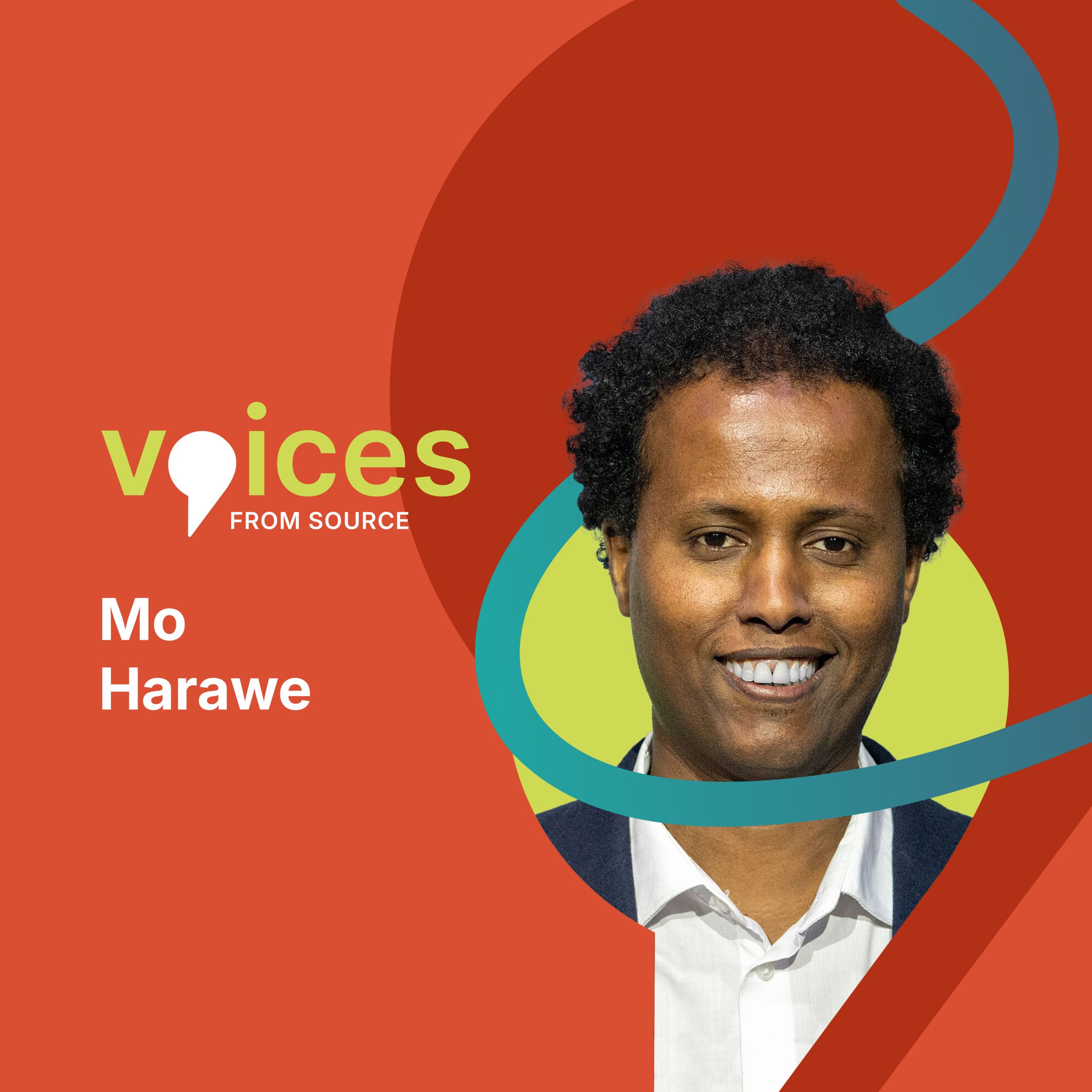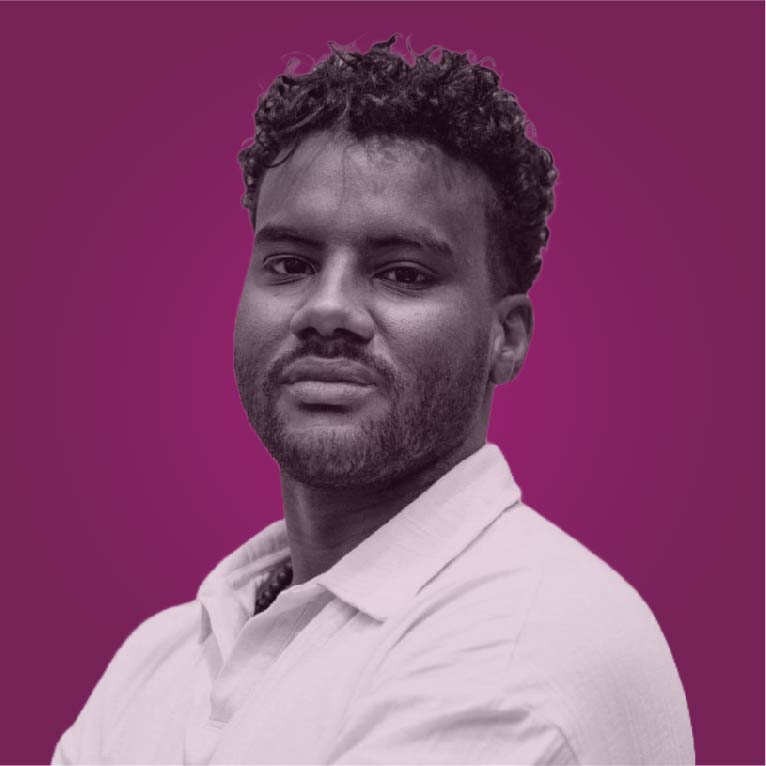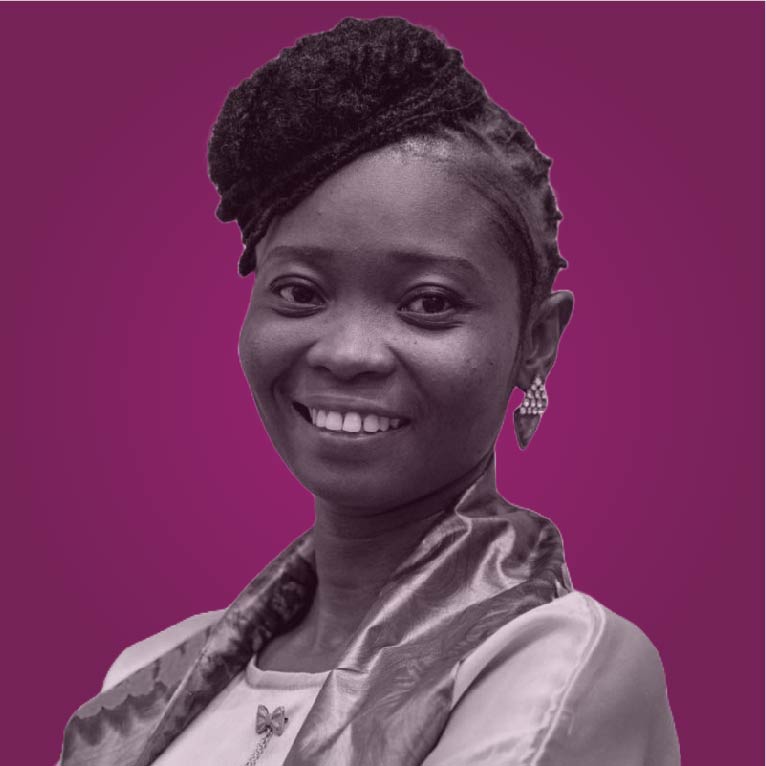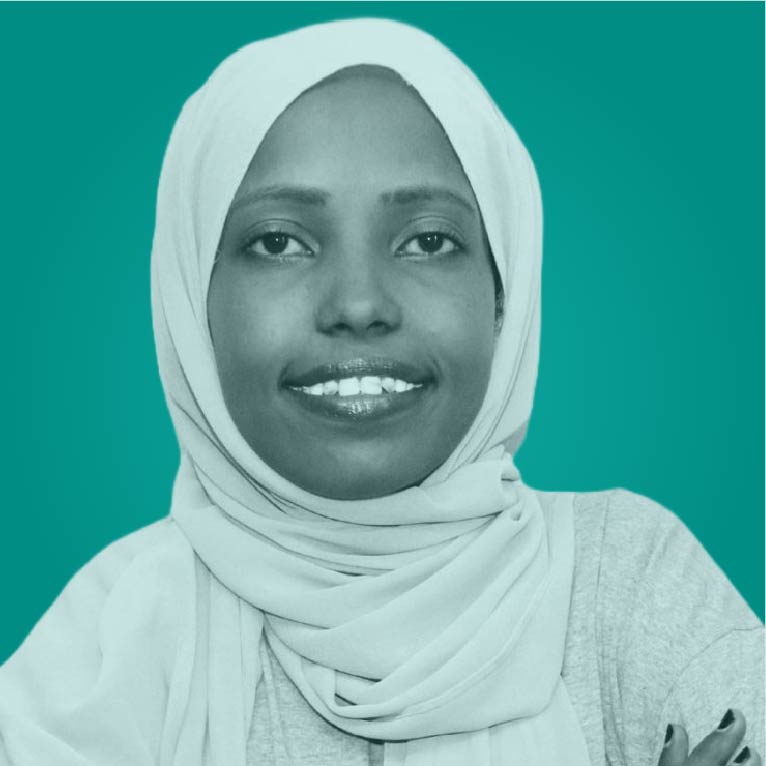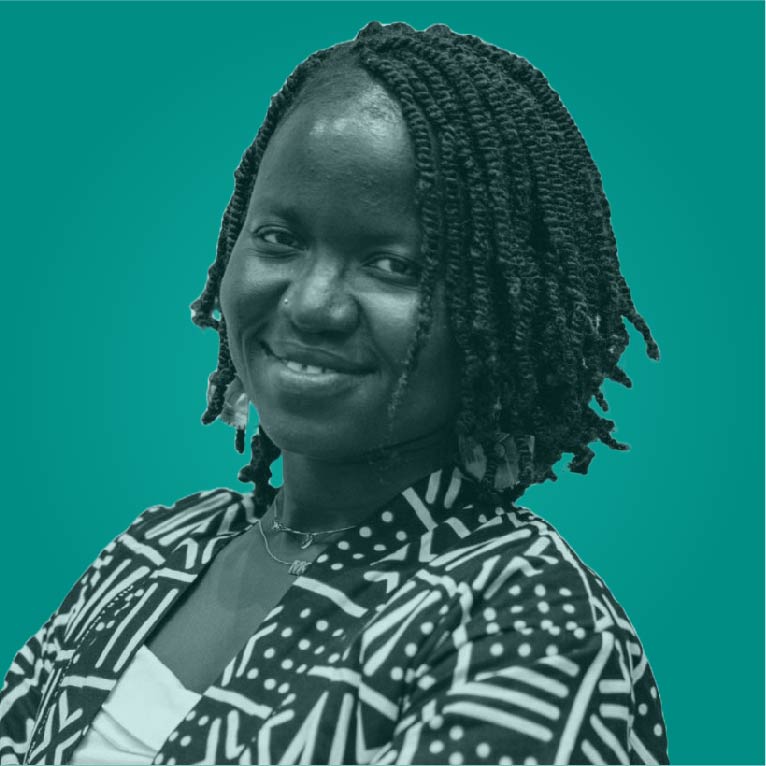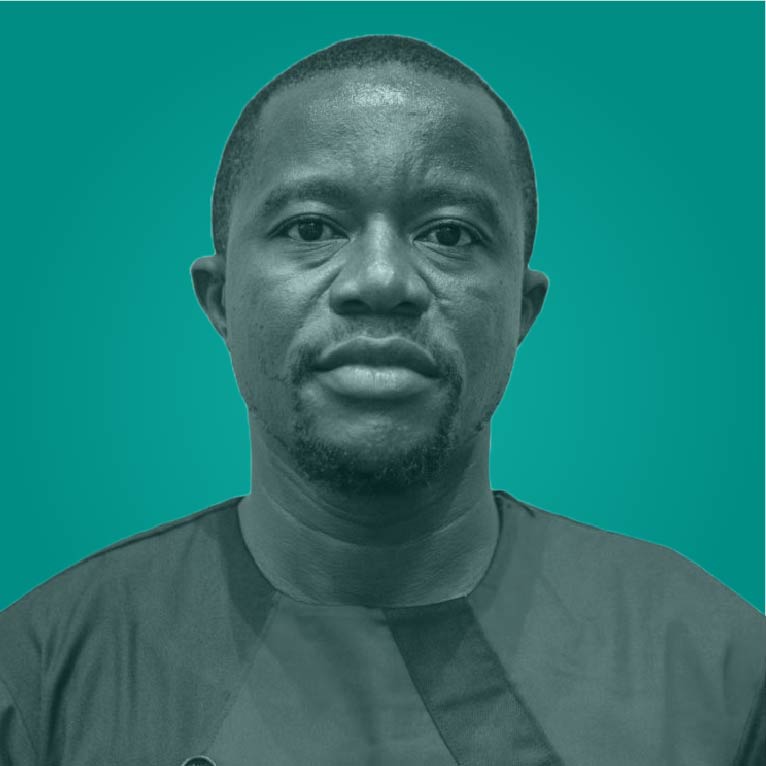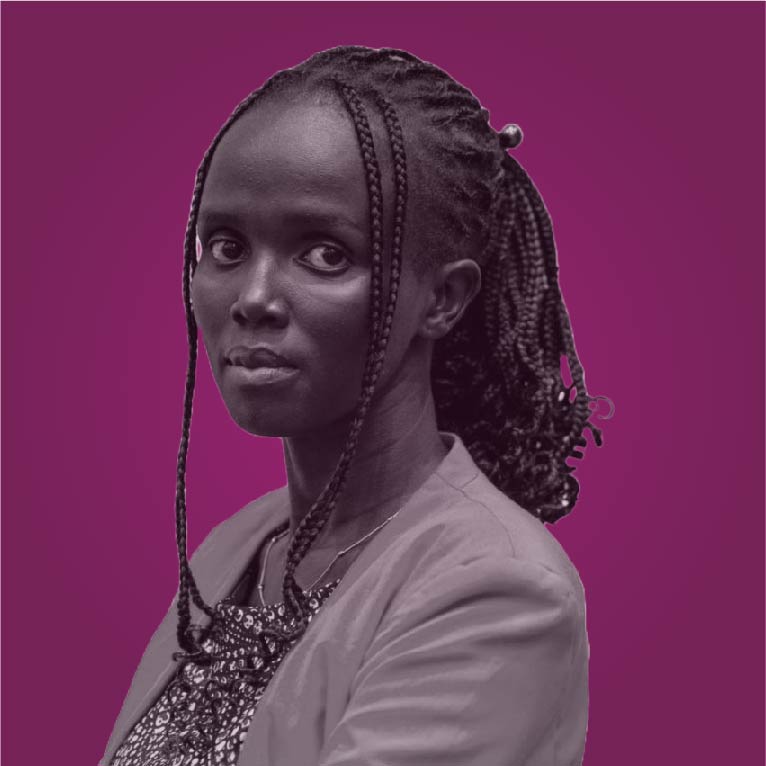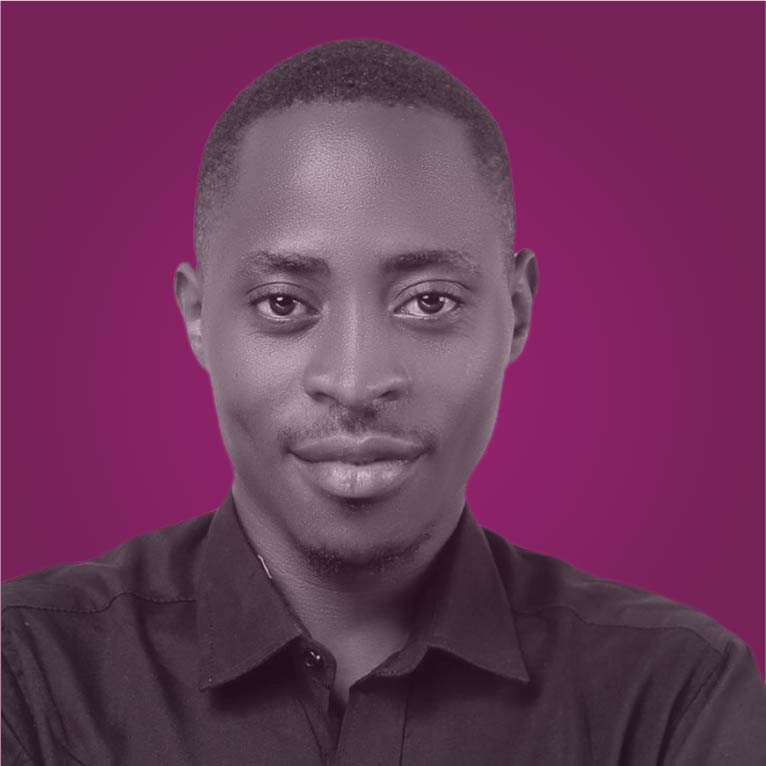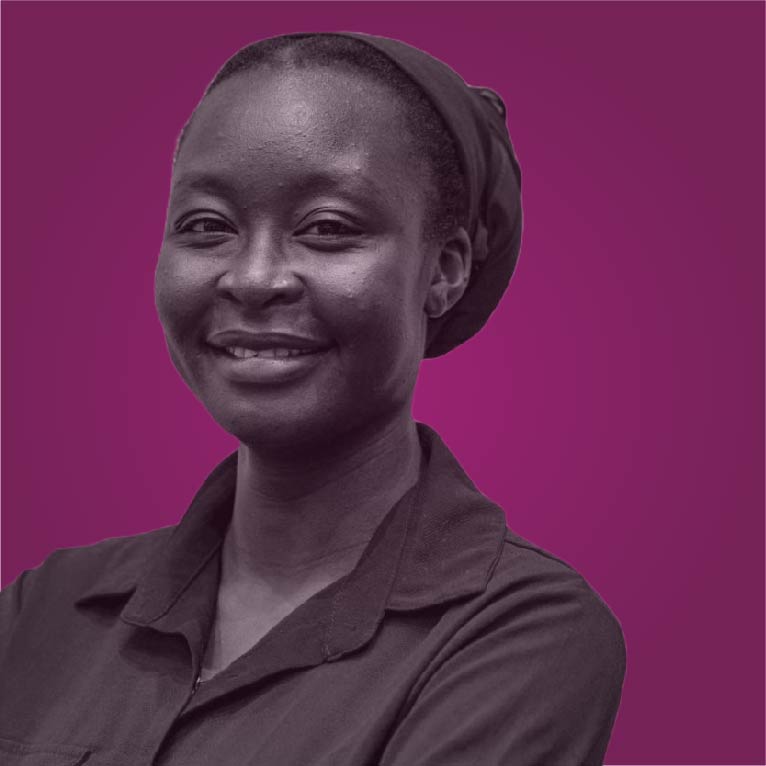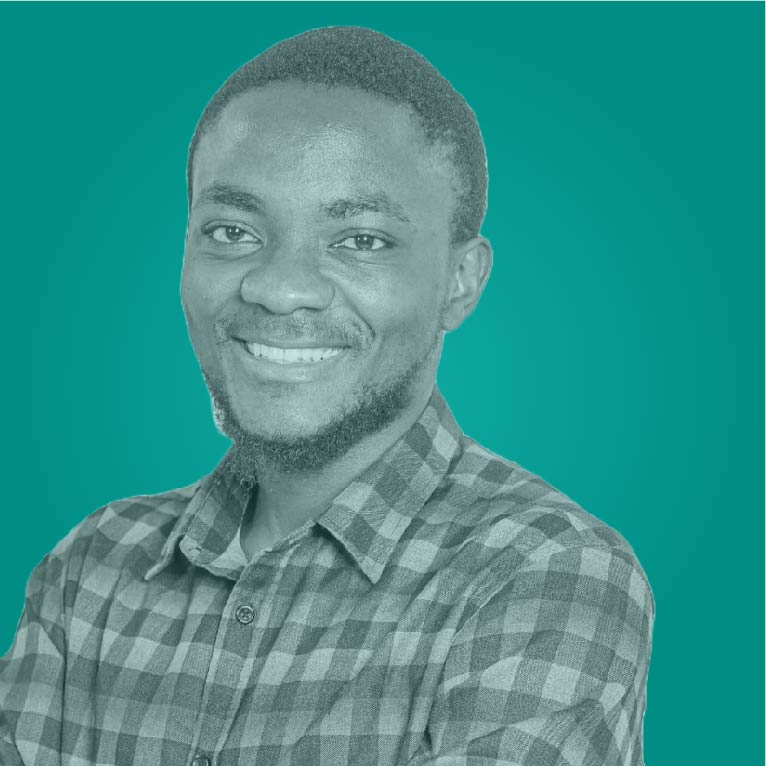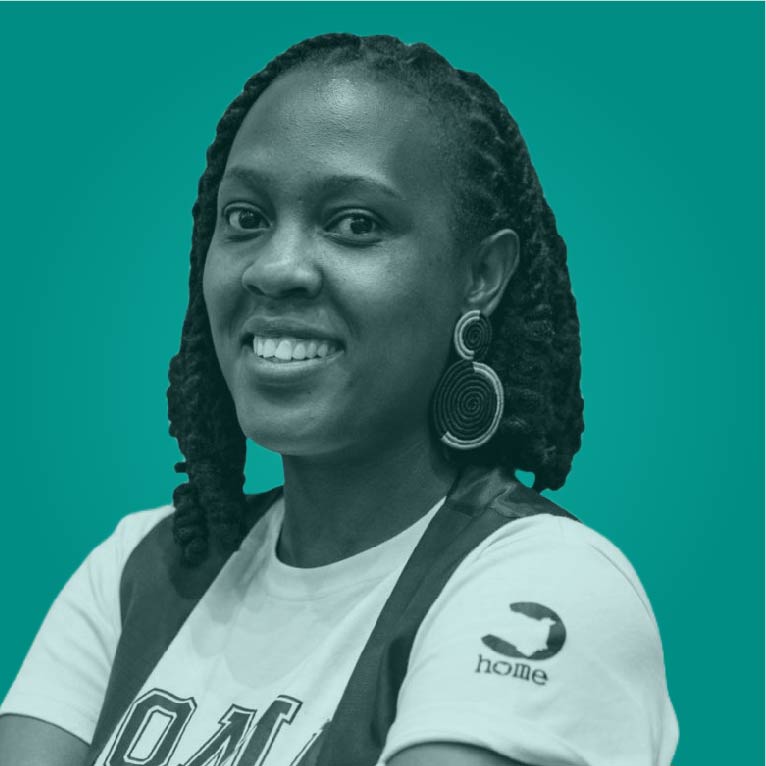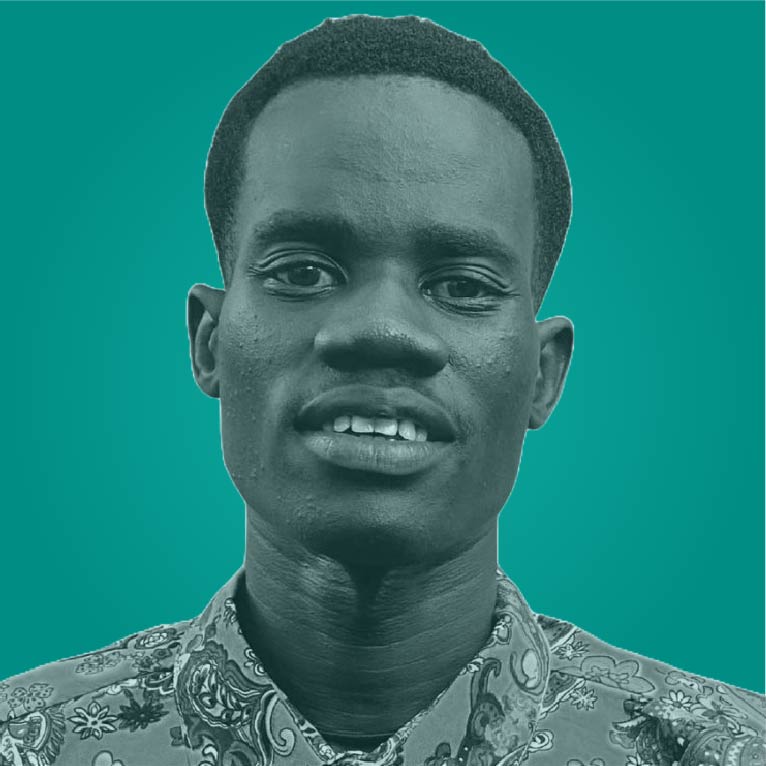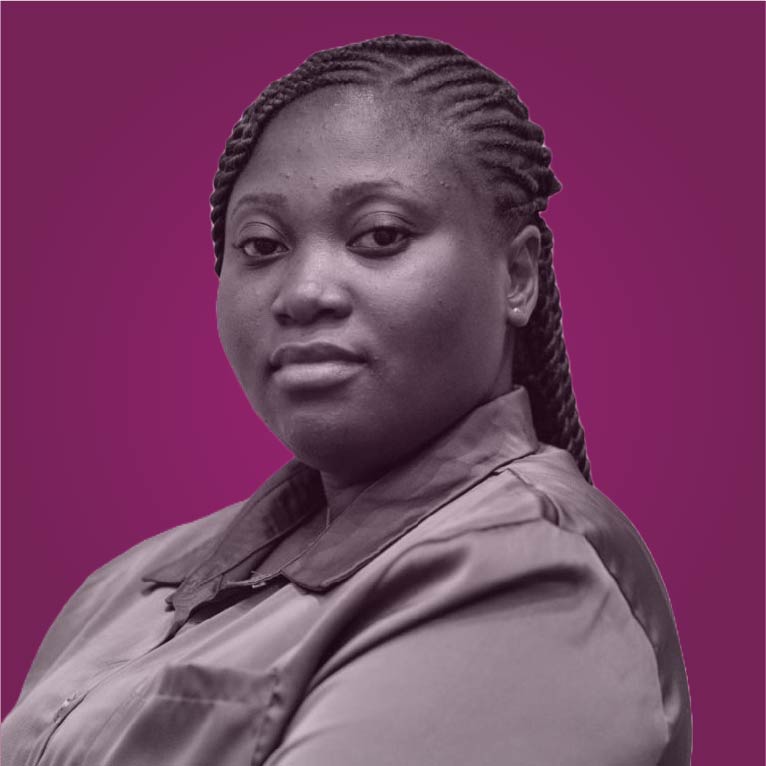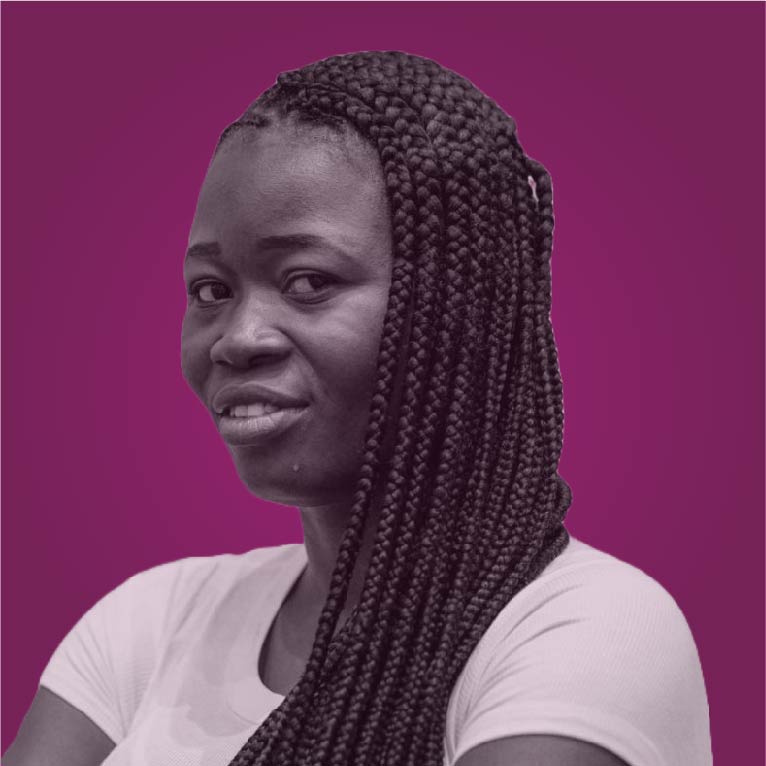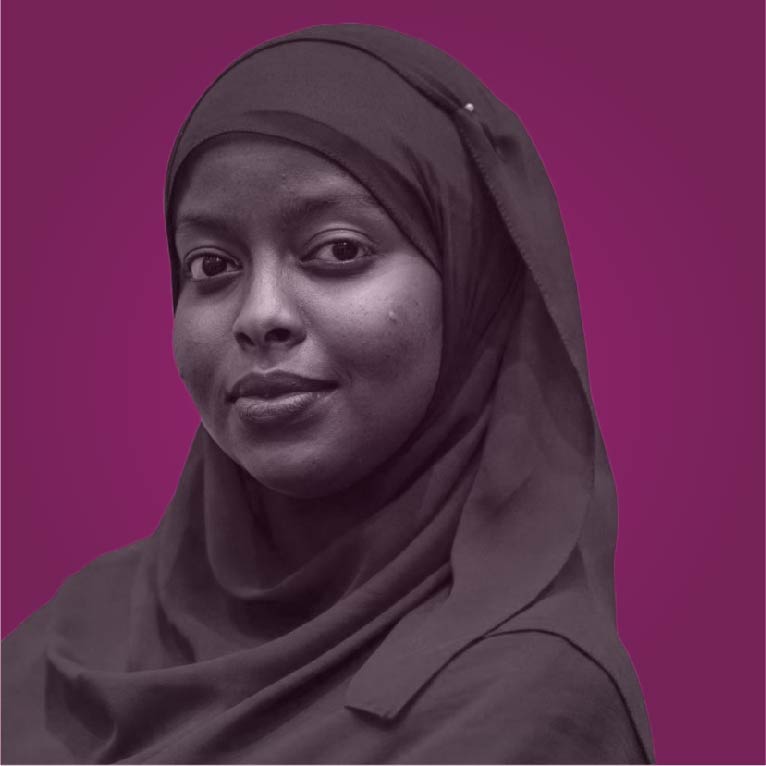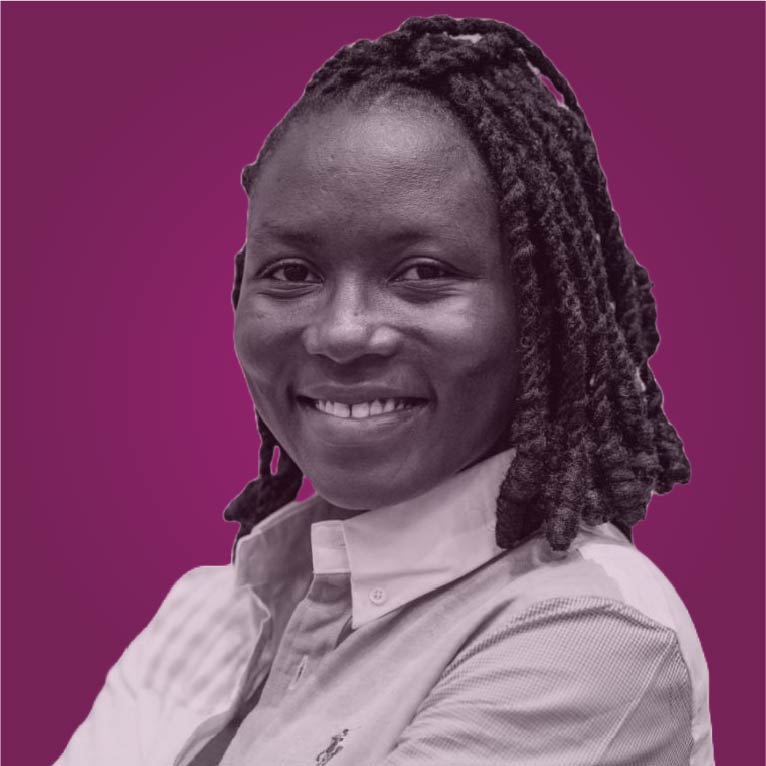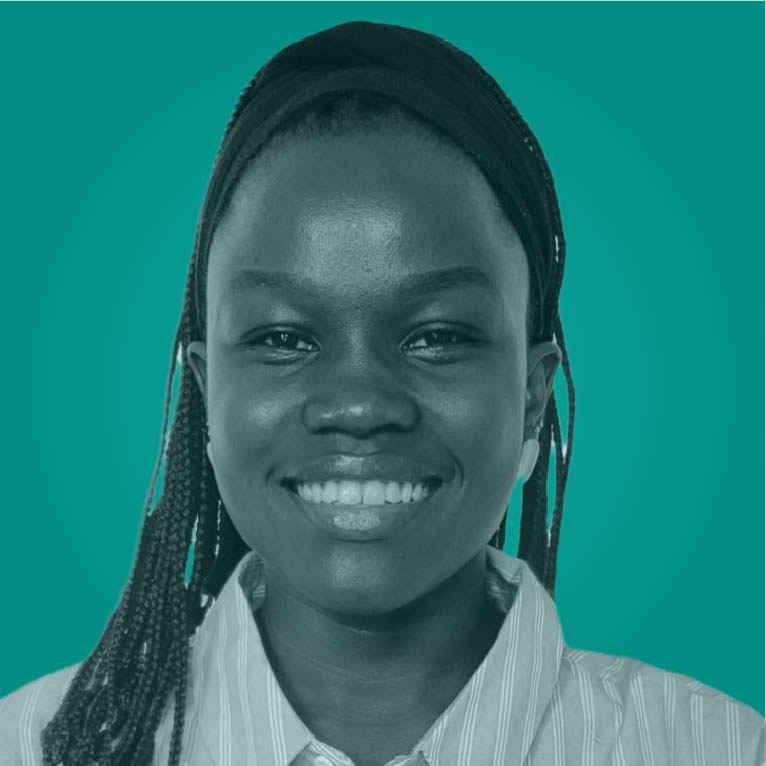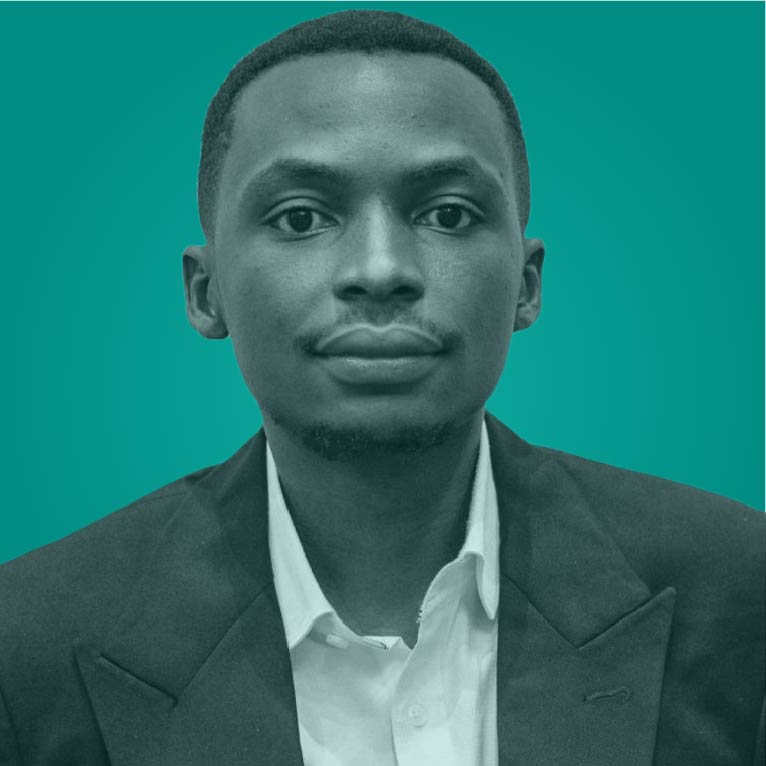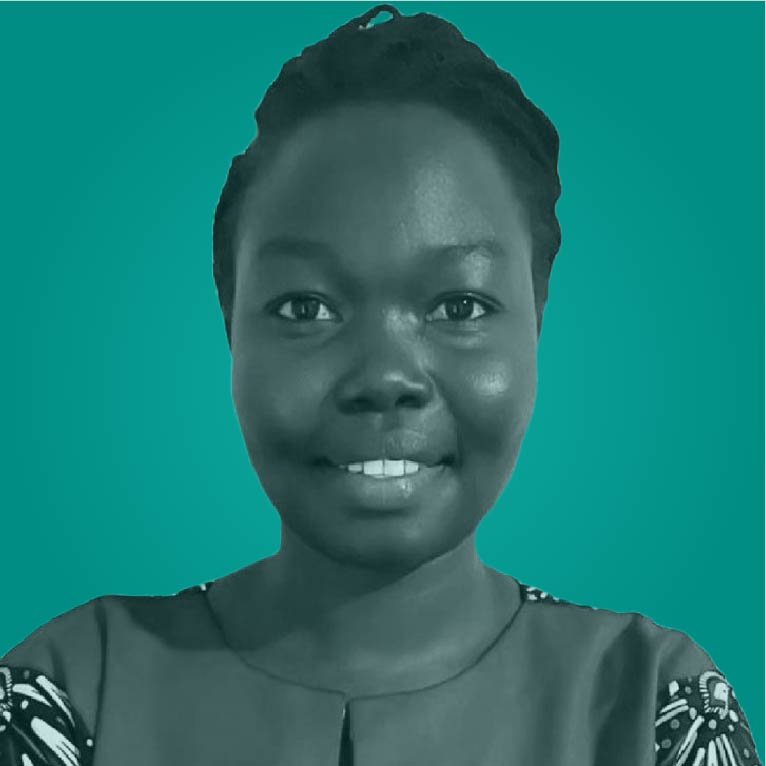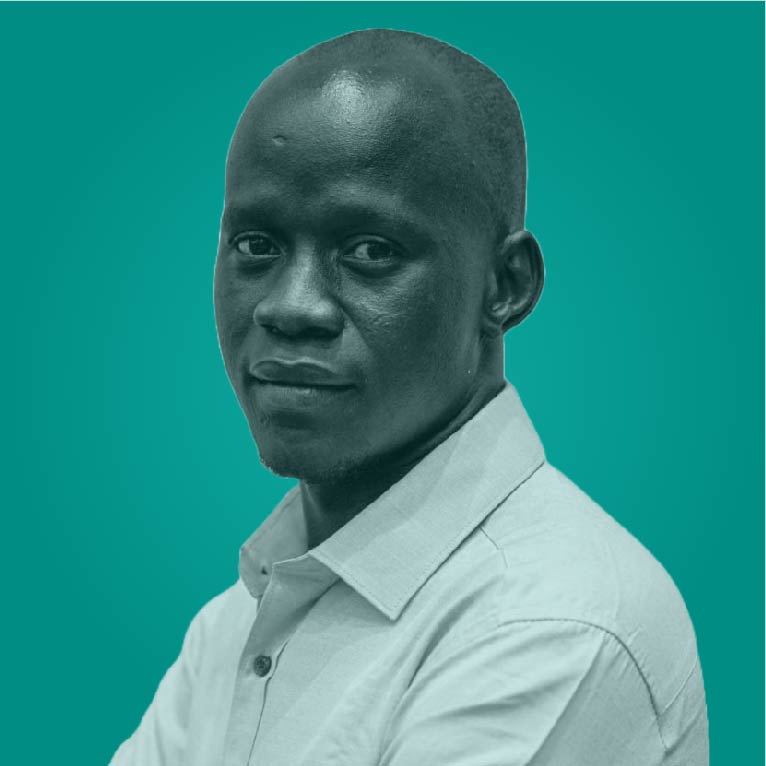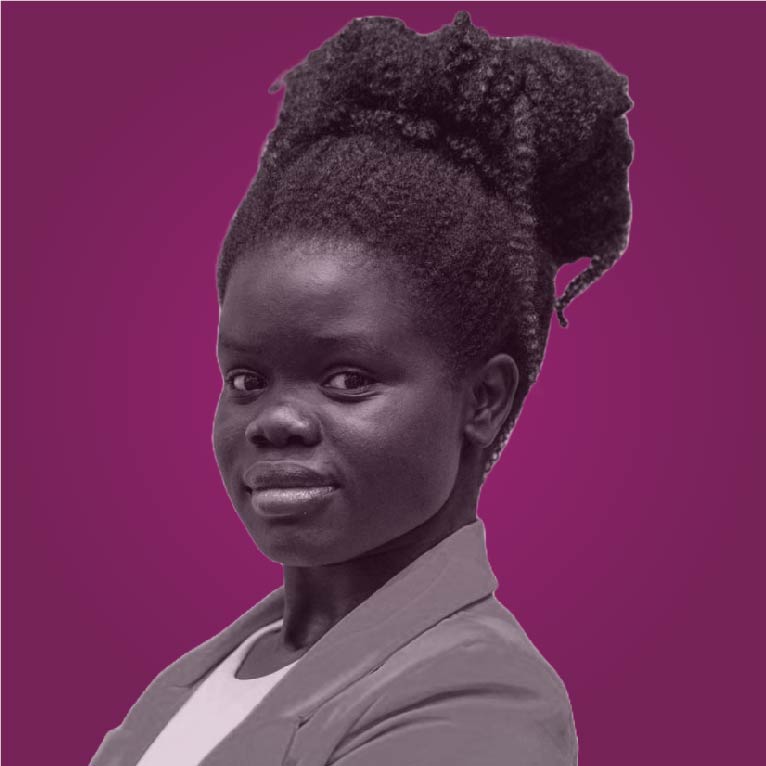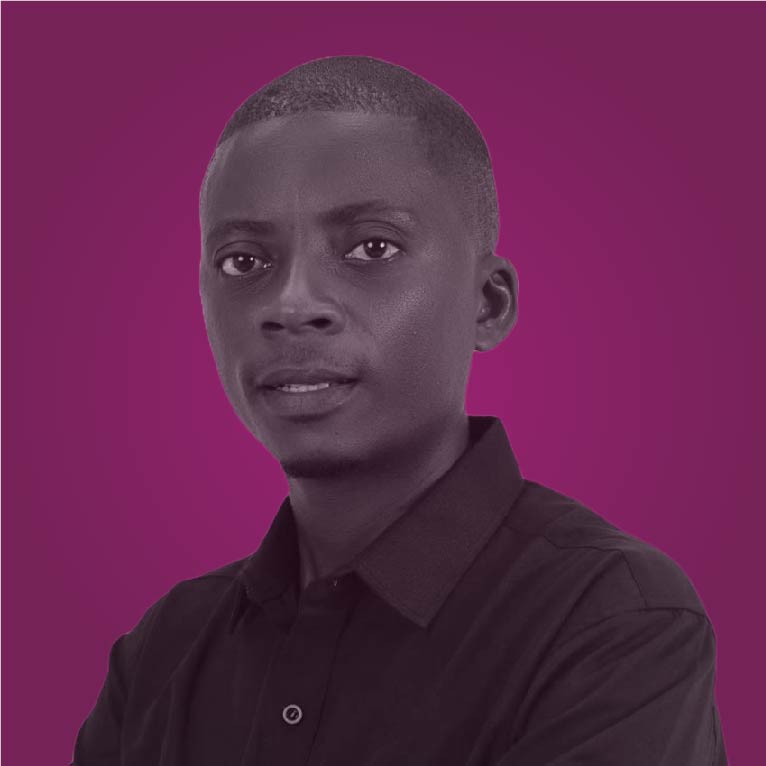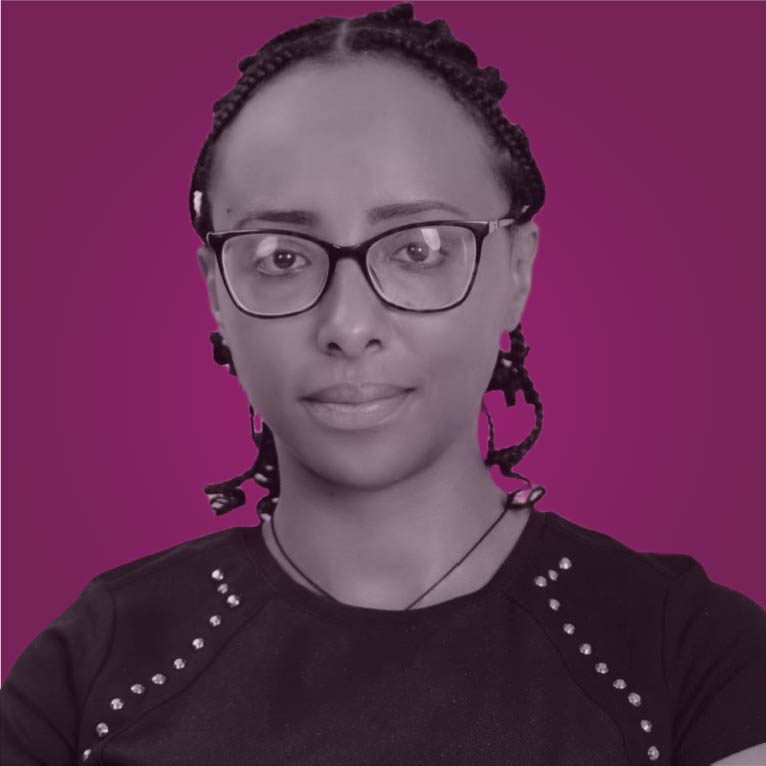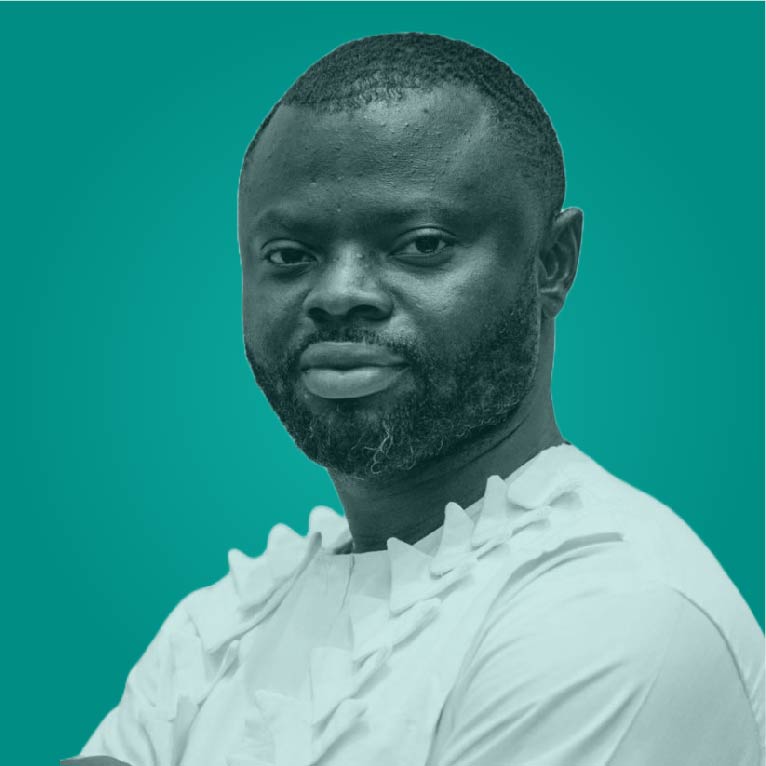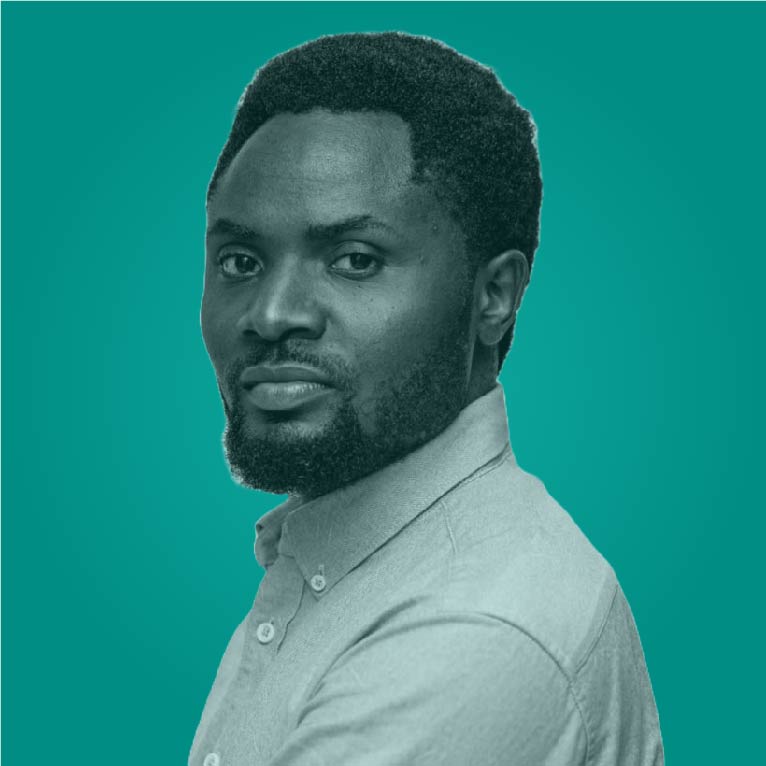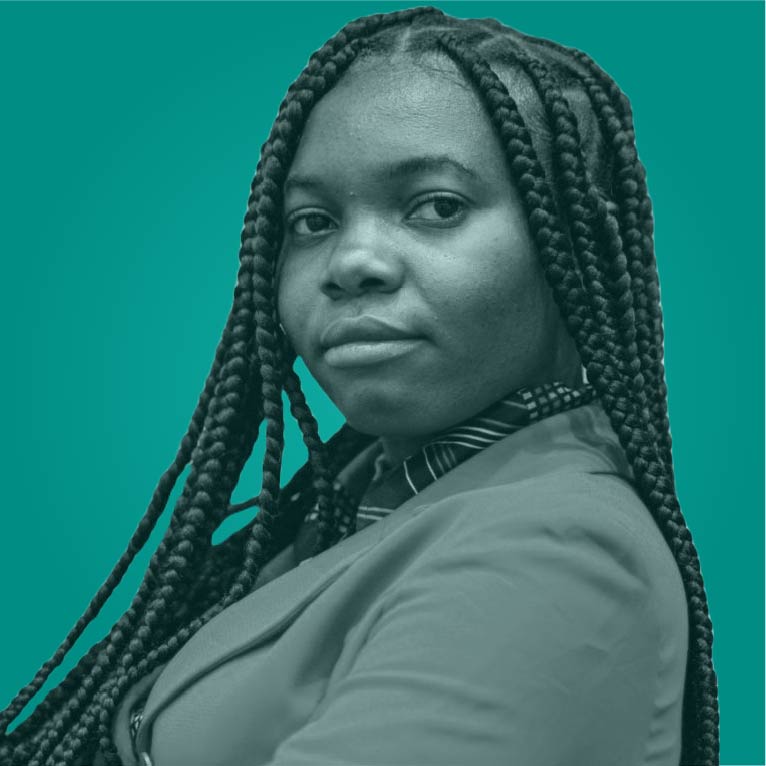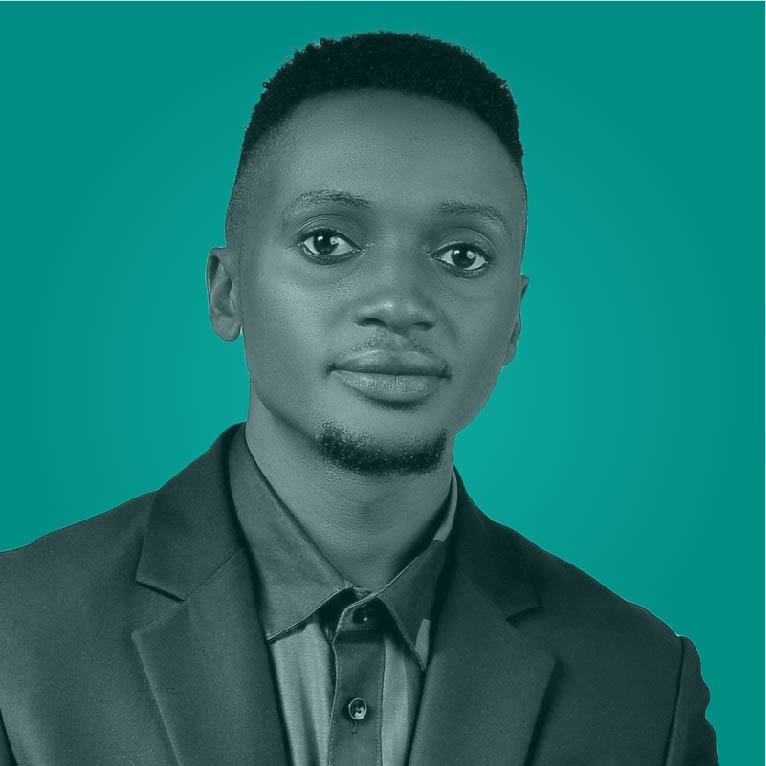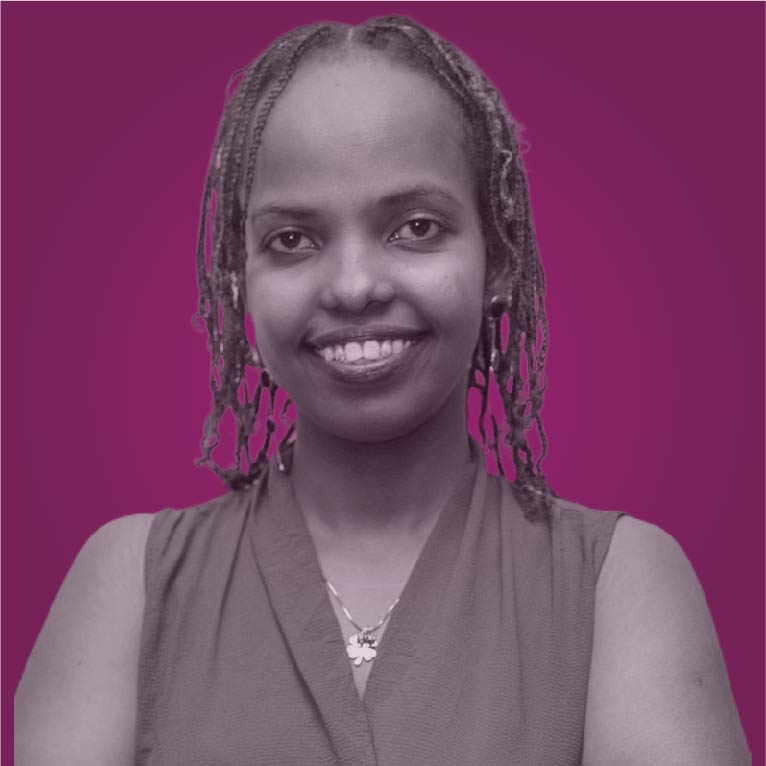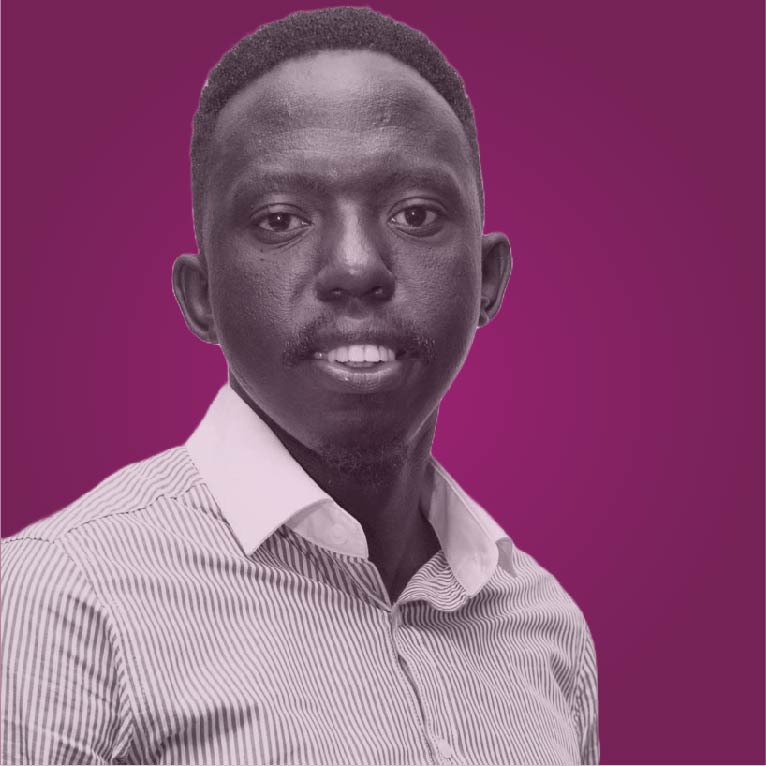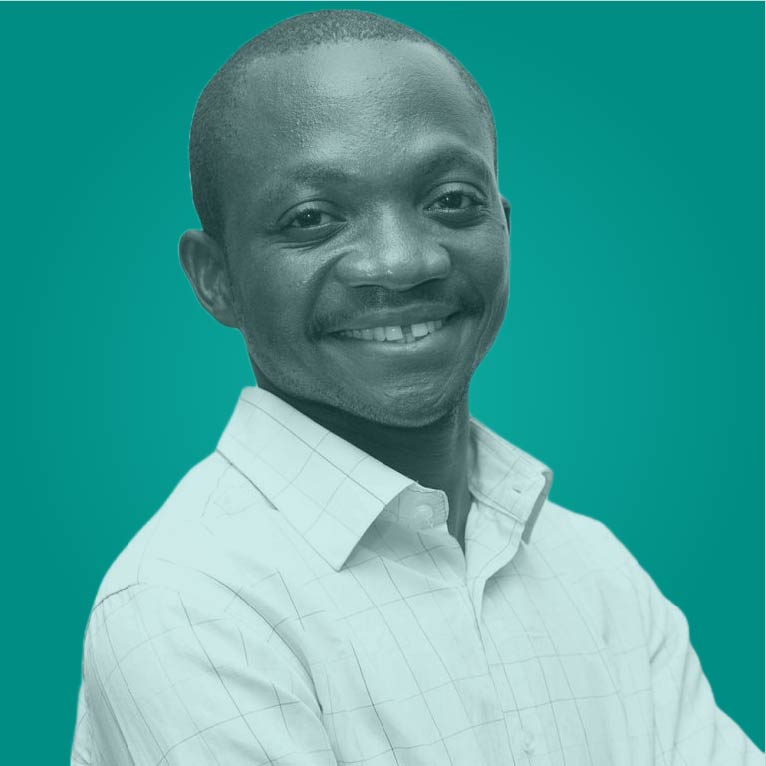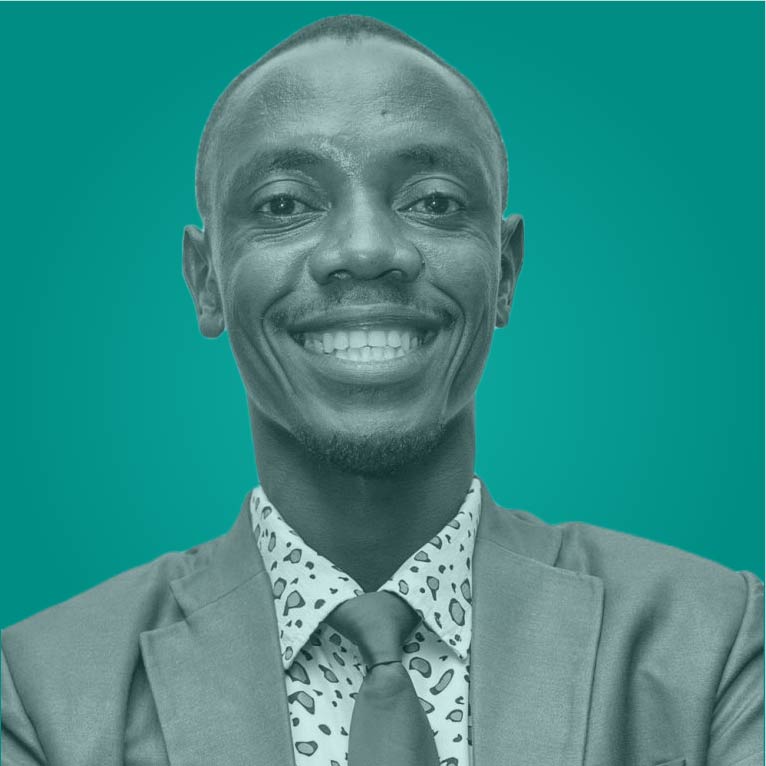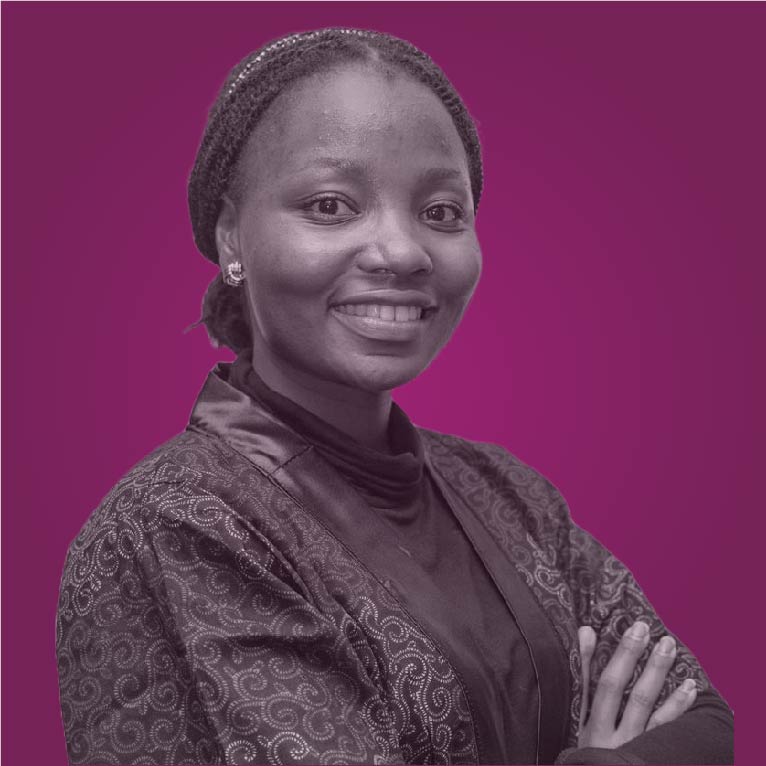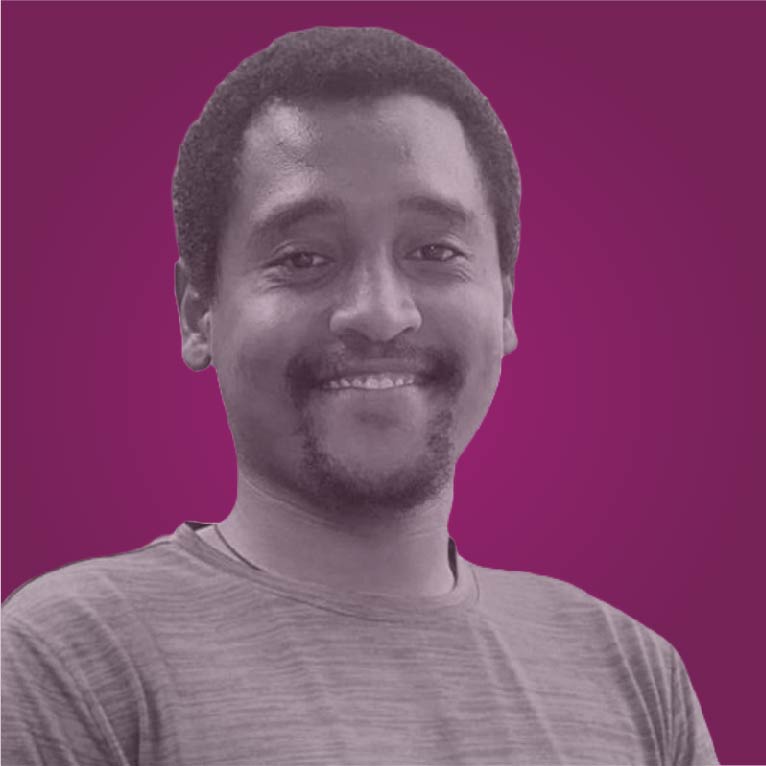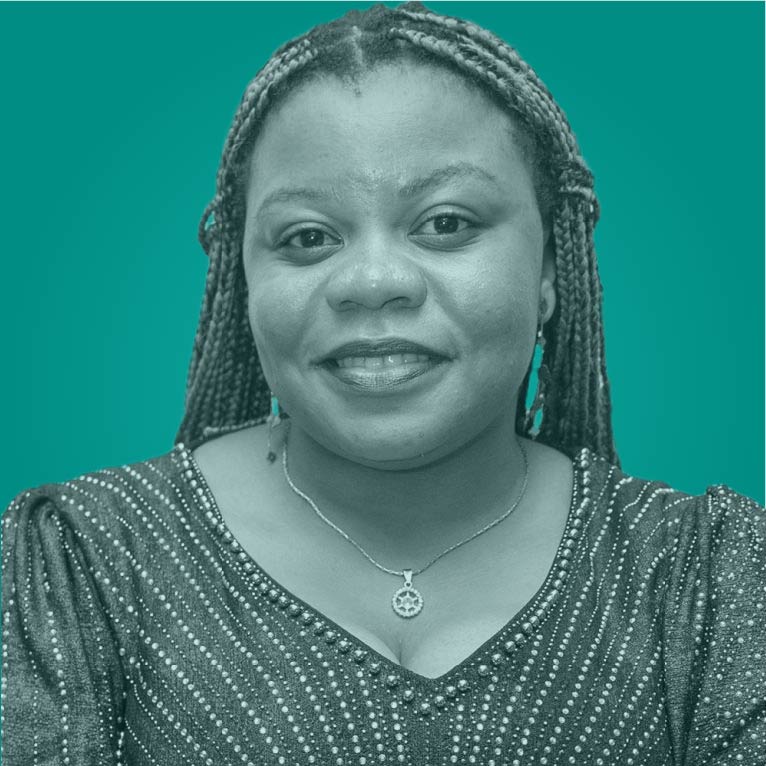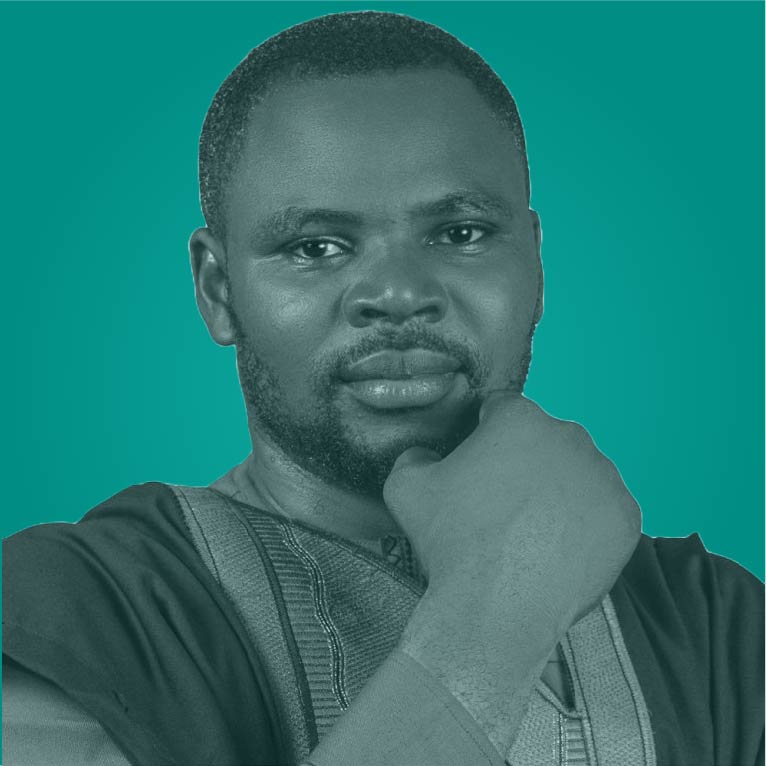
I didn’t recognize my people in those stories, I didn’t see our humor, our small joys, the way we endure.
Mo Harawe
Garowe, Somalia
The sun in Garowe hits hard. The city shines white, the color of most cars on its streets, and dusty brown, the color of its earth in this semi-arid land. Long, clean roads stretch ahead, lined with shops, cafés and banks. Stalls sell xalwo, the local sweet made with honey and spices.
At night, families sit outside on plastic chairs, talking softly. Young people film TikTok videos under the street lamps. From a distance, it feels like any other booming African town.
This is where Somali filmmaker and Amahoro Fellow Mo Harawe is shooting his fourth film, Whispers of a Burning Scent. He moves quietly across the set, giving instructions to his crew. The team includes professionals from Egypt, Kenya and Uganda, along with Somali actors and a large local production group.
The set is alive with music. The oud player’s sound is deep and steady. The lead singer, a woman with a clear voice, leads everyone in a popular folk song. Everyone claps along. The energy stays high, even late into the night.
“I started making films out of anger,” Mo said. He spoke in a quiet voice, the kind that makes you lean in.
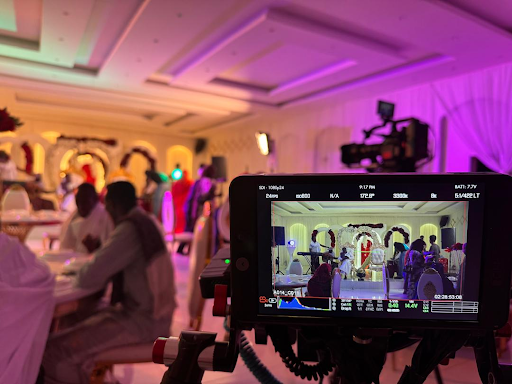
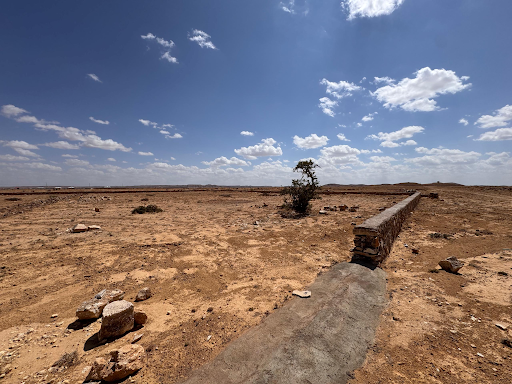
The anger, he explained, came from watching his country be spoken for by news anchors, politicians and outsiders who saw only war and famine. “I didn’t recognize my people in those stories,” he said. “I didn’t see our humor, our small joys, the way we endure.”
Mo grew up between two worlds: the Somalia he left behind and the one he found when he returned. For years he carried fragments of memory: playing with his school friends in Garowe, the smell of Somali tea and the social struggles his community faced. Film, he said, became his way to piece those fragments together.
Though soft-spoken, on set he raises his voice. Several times he shouts “Cut!” to redo a scene. Watching the monitor closely, he makes sure every emotion and expression is captured. You can see the strain on his face as he tells everyone they have to do another take at this late hour.
“It takes discipline,” Mo said, looking around. “You have to care, because we are telling our own story. That’s not small.”
It takes discipline, .You have to care, because we are telling our own story. That’s not small.
Mo Harawe
A question that wouldn’t go away
Mo Harawe spent most of his adult life in Austria. There, one question followed him everywhere: How did you go to school in a failed state?
He still remembers how it felt. “It was as if my country didn’t exist beyond its pain,” he said. “People couldn’t imagine that we could learn, create, or build anything.”
That question stayed with him. It became the reason he picked up a camera.
“I don’t understand why people call Somalia a failed state,” Mo said. “Yes, we have had problems. But that’s only half of our story. Before that, we had our own ways of governing, through clans and families. It worked for us. Then we were told to use systems that were never ours. So Somalia didn’t fail. It just tried something that didn’t fit.”
That idea became the heart of his first feature film, The Village Next to Paradise, the first Somali film to appear at the Cannes Film Festival under Un Certain Regard in 2024. Overnight, Mo became a voice for a new generation of African filmmakers.
His journey started earlier with a short film, Life on the Horn, made in Garowe in 2020 with one simple rule: only local actors and crew.
“People thought I was out of my mind,” he said. “They asked how I could make a film in Somalia. Even my closest friends laughed.”
He smiled as he recalled one man he tried to cast. “He stood up, looked at my friend Mohamed who had connected us, and said, ‘You called me for this? You think this is work?’ He told him it was insulting.”
Five years later, Mo’s friend Mohamed, who had tirelessly reached out to local actors when few believed in the idea of filmmaking, won the Best Casting Director Award from the Austrian Film Academy, the equivalent of the Oscars in Austria. His recognition was among the five awards earned by The Village Next to Paradise, Mo Harawe’s debut feature, which swept nearly all the categories for which it was nominated, including Best Film and Best Director.
Whenever they saw a camera, they thought someone had come to make them look like victims again.
Mo Harawe
Reclaiming the Story
In Garowe as in many other parts of Somalia, cameras once meant trouble. People were used to seeing them only when something bad had happened.
“Whenever they saw a camera, they thought someone had come to make them look like victims again,” Mo said.
He wanted to change that. “I didn’t want to hide our challenges,” he said. “But I also couldn’t accept being reduced to a label. I wanted to show the real life of this country.”
Mo knows displacement firsthand. He was born in Mogadishu, and his family fled to Garowe in the late 1990s. Later, he studied film in Austria. “Displacement shaped me,” he said. “I know what it means to lose everything and start again.”
For The Village Next to Paradise as well as for his other films, he hired internally displaced people as extras. “They earn money, yes, but also confidence,” he said. “They see a new way of being part of something.”
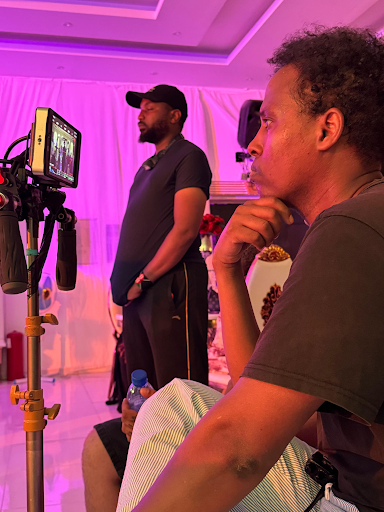
“Film is not only art. It is work that creates jobs and opportunity.”
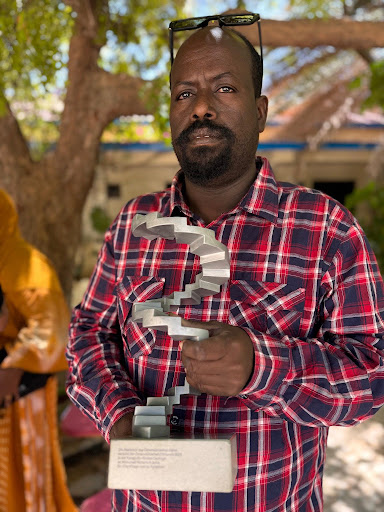
Mohamed couldn’t travel to the Awards Ceremony in Vienna,” Mo said. “So I brought the trophy home to Garowe myself. It felt right that way.”
Over four months of filming, his crew spent more than a million dollars in Garowe on production costs, including equipment rentals, actor payments, hotels, transport, food, and other local services. “We help the local economy,” he said. “Film is not only art. It is work that creates jobs and opportunity.”
After the Festival in Cannes, Mo wanted to show his film at home. But Garowe had no cinema. “We found a small hall,” he said. “It could take fifty people. Two hundred came. We had to do three screenings in one night. That’s when I realized there’s a hunger for film here.”
In 2023, he founded the Maanwaal Arts and Cultural Centre to train local artists and is now raising funds to build Puntland’s first cinema. “Young people here are already creating,” he said. “They film on their phones. They just need space.”
As the day’s shoot ended and the city cooled, Mo looked toward the hills and smiled. “Somalia is not a failed state,” he said. “It is a country finding its way.”


